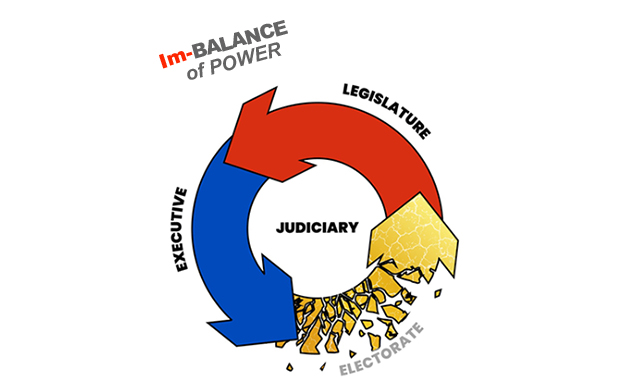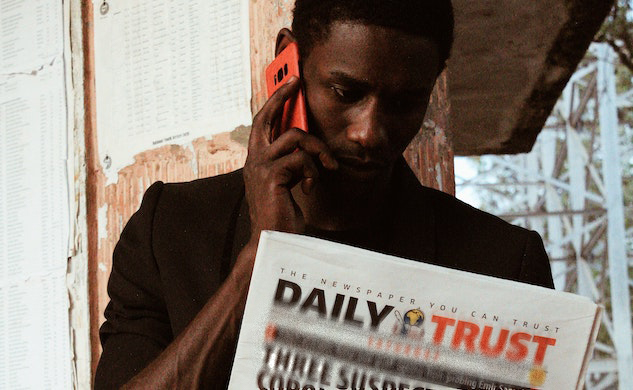


UNIFIED DATABASE

It is said that "Necessity is the mother of innovation.."
However, with the advent of modern civilisation, Nigeria appears to be one of the west African countries completely out of their depths in the struggle to adjust to the degree of change which has swept the African continent by storm and shaken it to it's core.
Year by year, African countries, and especially those in the west, continually rank least on the scale of economically advanced nations, which in turn has led to the wide generalisation of most African countries as poor and undeveloped. Though Nigeria would much rather be described as a "developing" country, This claim stands to be questioned, considering the numerous setbacks we contend with.
However, with a little more effort and willingness to participate, our country wouldn't even have to deal with half of these baggages we are ladened with.
What we largely need to do is change or improve on our methods of problem solving.
We can't expect to achieve the same level of development in places like Japan, America, the U.K etcetera, while continuing with the same ineffective approaches that we have been using.
Werner Erhart describes as insanity "repeating identical behaviour and expecting different results"
Nigeria is no longer a small village with indigenous people. Since its amalgamation in 1914, we've become a large country, the largest in Africa in fact. Yet, it's a sad reality that even in this time and age, we still haven't gotten our organisational setup right.
Our methods of data collection, for example, is no longer functional.
Citizens’ data is collected and stored disjointedly everywhere, making it difficult to get an information across multiple government parastatal databases that house these data.
However, with some improvement in collection and storage designs, these data could play a much broader role in driving socio-economic development such as social security, proper policy formulation, crime prevention, housing, background checks and so on.
Practically every organisation, both public and private tend to collect certain personal information such as name, gender, address, blood group, place of birth, and so on at one time or the other. As a matter of fact, by the time you show up for your first job after completing college in Nigeria, such record would probably exist in multiple databases belonging to one or more following parastatals — National Youth Service (NYSC), Driver License (FRSC), Bank Verification Number (BVN), Tax registration (FIRS), National Census (NPC), Voter registration (INEC) etc.
Not surprisingly, since each of these separate databases is not aware of the other (i.e. the database are not synced).
A “Mr. Olusegun” who lived in “street ABC” in Lagos Nigeria according to his driver’s license (FRSC database), may live in “street XYZ” according to the bank’s statement (BVN database)!
The reason for this ambiguity is an obvious one — when different government agencies and parastatals have their own IT systems with no shared synchronisation, the result is duplicity, inconsistency and inaccuracies.
Since we cannot trust the data collected so far, it is not surprising that government has to invest much needed human and capital resources on new data projects or schemes such as the new national identity card project.
Asides the obvious redundancy of such effort, data will be entered at different times into disparate databases and this will further compound the problem of inaccuracies in such records.
Admittedly, the solution is not so simple. We cannot simply rip out all the databases and create a single replacement. However, there are several tools that can be used to clean, blend and consolidate these records, and while this article is not the place for such technical detail, it is important to point out that most of them can be deployed with minimal effort.
The associated cost of the data consolidation can be handled by a public-private partnership initiative where businesses (e.g. banks, realtors, consumer agencies etc.) that require such data from national data centre could pay for the cost of maintaining it rather than the government even though the government will still have the authority to regulate access to the data.
Such initiative will certainly drive innovation and open doors for modernisation and advent of big data tools (Hadoop, spark etc.) for data analytics and visualisation.
In a second phase, we can begin the process of evolving a single database to create new records that can be updated in future. For example, Mr. Olusegun’s home address could get updated when he obtains a driving license through FRSC etc. instead of creating multiple records at different government agencies or parastatals.
While some may argue about creating more jobs with the current multiple data schemes or projects, government wastages have never improved Gross Domestic Products (GDP). However, capitalism (through new businesses), when properly enabled with data as most developed economies have shown, will further grow the economy.
Furthermore, there is always an associated high cost of maintaining IT systems especially databases which grow linearly with the country’s population and in addition, could impact the performance of these data storage systems.
Lastly, with the data sitting in different silos, it’s hard to derive analytical insights or information for social-economic purposes since you’re only seeing a part of the picture with every single database. Therefore, it is time for a national data strategy in Nigeria and Africa as a whole.
While it is possible for one to argue against the necessity of such effort in light of other challenges confronting the continent, however, we need accurate data for national planning and economic growth.
For years, Nigeria has been at the crossroads of civilisation, ever so hesitant to take the bold step forward, yet not quite turning back to the arms of ancient traditionalism. This attitude of being on the fence is the reason behind a lot of the difficulties facing the country. And slowly, a brief hesitation becomes delay and delay, they say, is dangerous.
It's not always easy to take that first big step, but once it's been taken, the notion of impossibility becomes immaterial.
"It always seems impossible until it’s done" — Nelson Mandela (1918 – 2013)
The key is in finding what best works for us, and making it work.




(3) Comment
@TheGreenTugboat This should update on the server
@TheGreenTugboat Comment here
Comment here